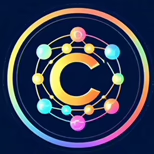
A federal prosecutor lets the Department of Justice still consider charges against Tom Schmidt of Dragonfly, before quickly asking the court to seal the comment. The case of Tornado Cash is now entangling the risk capital in a way that few expected.
Summary
- A justice department prosecutor revealed that the charges against Tom Schmidt of Dragonfly are still under consideration, before requesting that the statement be sealed.
- Tornado’s cash trial is emerging a possible new theory of investors’ responsibility
According to a position of July 25 x of Fox Business journalist, Eleanor Terrett, a prosecutor from the Department of Justice revealed in an open court that criminal charges are still being considered against Tom Schmidt, a general partner of the Risk firm of Crypto Dragonfly.
🚨NEW from the @rstormsf trial: The DOJ is apparently still considering charges against an unspecified number of people at crypto VC firm @dragonfly_xyz, not just General Partner @tomhschmidt, according to AUSA Rehn.
After saying this in court, Rehn asked for the transcript of… https://t.co/jt1XCCWO0P
— Eleanor Terrett (@EleanorTerrett) July 25, 2025
The United States assistant lawyer, Thane Rehn, revealed during the Tornado Roman Storm Tornado developer trial, where emails between Schmidt, Dragonfly co -founder, Haseb Qureshi, and Storm’s team were presented as evidence. One of these exchanges showed the founders who sought comments on the implementation of KYC measures, a detail that complicates the government’s narrative of facilitation of intentional money laundering.
Tornado’s cash trial intensifies, the investor’s responsibility takes the center of the stage
The interest of the Department of Justice in Tom Schmidt seems to come from the role of Dragonfly as the main sponsor of the Cash Tornado company and internal communications that prosecutors can argue show a deeper participation than the typical investment supervision.
The emails presented in the Court reveal that Schmidt and the dragonfly co -founder Haseb Qureshi dedicated themselves directly to the founders of Tornado Cash, even discussing potential implementations of their client (KYC).
This complicates the government’s statement that developers knew sabbhes money laundering, since it suggests efforts to explore compliance. However, prosecutors seem to be testing a novel theory: that financial sponsors could assume responsibility if the tools of their portfolio companies are used later, even if investors never controlled protocol operations.
Remn’s request to seal your comment on possible dragonfly charges suggest the sensitivity of the Department of Justice around your strategy. Superficially, this may indicate continuous investigations or a desire to avoid prematurely public perception before charges are completed.
It also underlines the high bets for Schmidt, who, by invoking the fifth amendment, said he believes that his testimony could expose it to prosecution. The defense had pressed immunity to force his story, seeing him as a key witness to counteract the narrative of the Department of Justice. Without his testimony, Storm’s team loses the opportunity to highlight Dragonfly’s advice role, which could have helped distant the founders of accusations of criminal intention.
The implications extend far beyond this test. If the Department of Justice chases Schmidt or other Dragonfly figures, it could establish a precedent that would cool the risk investment in privacy tools or open source projects in general. Investors may require unprecedented supervision of technical decisions or avoid controversial sectors completely.
Meanwhile, the Roman storm and coacusado Roman Semenov face charges, including the conspiracy to commit a money laundering and sanctions, which entail a maximum combined sentence of 40 years in prison. The Department of Justice alleges that they enabled the criminals knowingly, including the Lázaro Group of North Korea, despite the insistence of the developers that Tornado Cash was simply a neutral infrastructure.




